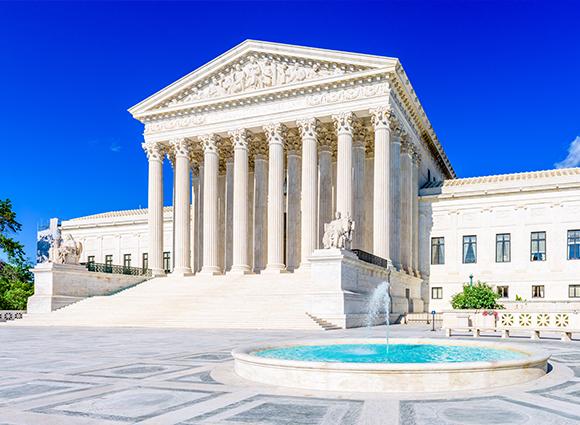
Supreme Court Finds No Standing to Challenge a Provision of the ACA
A number of states and individual taxpayers sought to challenge the constitutionality of a provision in the Affordable Care Act (ACA). In a 7-2 decision, the U.S. Supreme Court has ruled that both the state and individual plaintiffs lacked standing to challenge the ACA’s minimum essential coverage provision. Since the plaintiffs lacked standing, the Court didn’t address the validity of the law. The Court reversed the Fifth Circuit Court of Appeals, which had found that some of the plaintiffs did have standing and that the provision was unconstitutional. (California v. Texas, 6/17/2021)
Individuals who filed protective refund claims for 2016 should be aware of this decision as no refund of NIIT will be paid.
Background
The ACA as it was enacted in 2010 required most Americans to obtain minimum essential health insurance coverage and imposed a monetary penalty upon most individuals who failed to do so.
Amendments to the law in 2017 effectively nullified the penalty by setting its amount to $0. Subsequently, Texas (along with over a dozen states and two individuals) brought suit against federal officials, claiming that without the penalty ACA’s minimum essential coverage provision was unconstitutional.
The plaintiffs sought a declaration that the provision was unconstitutional and the rest of ACA isn’t severable from it. They also sought an injunction against enforcement of the rest of the law. A U.S. District Court determined that the individual plaintiffs had standing. It also found the provision both unconstitutional and not severable from the rest of the Act.
The Fifth Circuit agreed as to the existence of standing and the unconstitutionality of the provision, but concluded that the district court’s severability analysis provided insufficient justification to strike down the entire law.
Reversed and Remanded
The Supreme Court, reversing the Fifth Circuit, held that the plaintiffs do not have standing to challenge the minimum essential coverage provision because they haven’t shown a past or future injury fairly traceable to the government’s conduct enforcing the provision.
Since the Court said the plaintiffs didn’t have standing, the Court didn’t reach the question of the law’s validity.
Justice Stephen Breyer delivered the opinion, in which Chief Justice John Roberts, Justice Clarence Thomas, Justice Sonia Sotomayor, Justice Elena Kagan, Justice Brett Kavanaugh and Justice Amy Coney Barrett joined. Justice Samuel Alito filed a dissenting opinion, in which Justice Neil Gorsuch joined.
Effect on Taxpayers
Due to the reversal, certain taxes imposed by the ACA will remain in place (such as the Net Investment Income Tax (NIIT)). The NIIT of 3.8% applies to certain net investment income of individuals, estates, and trusts that have income exceeding the threshold amounts of modified adjusted gross income (currently $250,000 for married filing joint returns and $200,000 for single returns). Contact your tax advisor for more information or contact us to speak with a Mize CPAs professional about your tax matters.




